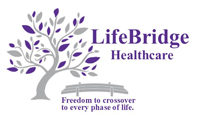Post-traumatic Stress Disorder
Two and a half million Americans have served in Iraq and Afghanistan; many of them, more than once. The VA tells us about 20 percent come home with post-traumatic stress disorder, known as PTSD. So, that comes to about 500,000 affected veterans. For some, returning is harder than they imagined. Small liberties that we, civilians, take for granted in our day to day lives become significant feats to our veterans Such as; driving a car in regular traffic or being in a crowded mall. Little things we take for granted can be triggers to our veterans. The auicide rate for the Army is up 15 percent over the last year. For Marines, it’s up 28 percent. A few of our troops return to become something they never thought they could be criminals, for the first time in their lives. It’s Our mission at Lifebridge to help bridge the gap in counseling services and linking soldiers to other continuous forms of care so that they can lead productive lives.
Some of the most common forms of PTSD include recurring memories or nightmares of the event(s), sleeplessness, loss of interest or feeling numb, angry, and irritably, but there are also ways PTSD can impact everyday life. Sometimes these symptoms don’t surface for months or years after the event or returning from deployment. If these problems won’t go away or are getting worse – or you feel like they are disrupting your life – you may have PTSD. If you have PTSD, it doesn’t mean you just have to live with it. Two types of treatment have been shown to be effective for treating PTSD: counseling and medication. Professional Counseling can help you understand your thoughts and discover ways to cope with your feelings.
Medications in severe cases are used to help you feel less worried or sad. In just a few months, for some, these treatments can produce positive and meaningful changes in Symptoms and quality of life. They can help you think about your trauma – and change how you react to stressful memories.
It is the mission of our counselors at Lifebridge to evaluate and assess each service man or woman individually and equip them with the proper tools to live a healthier life.
